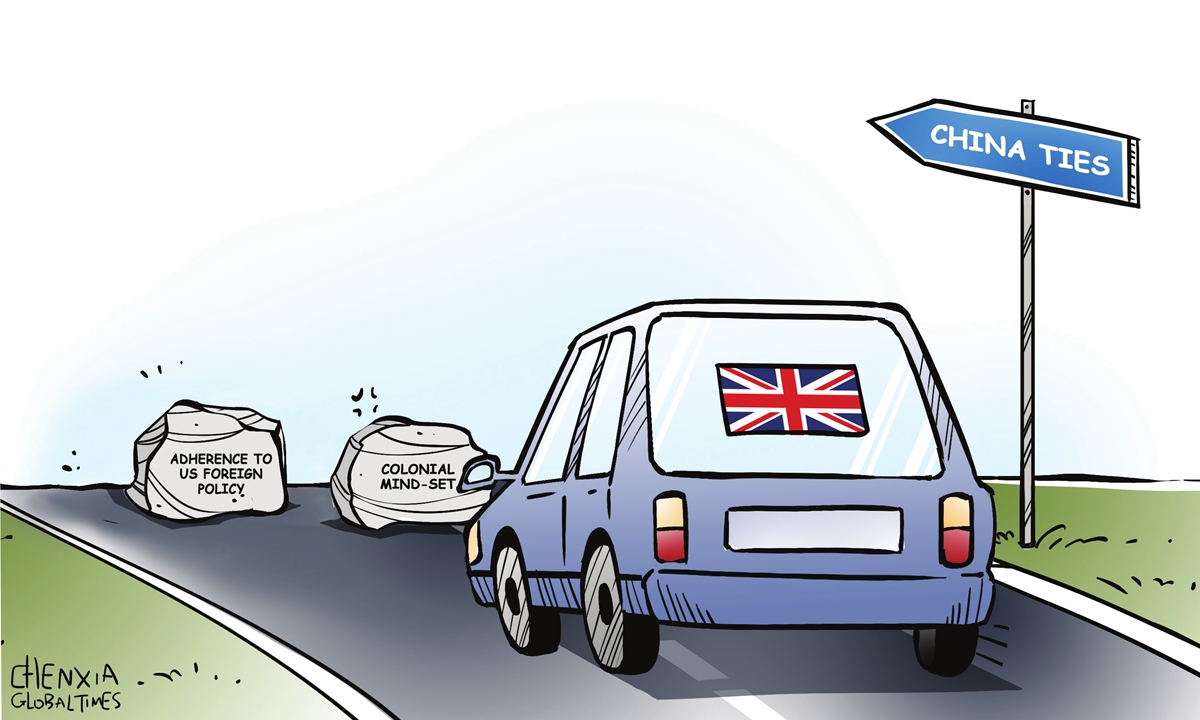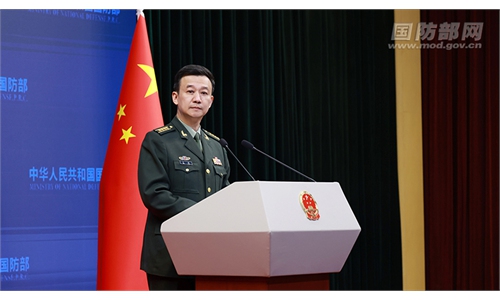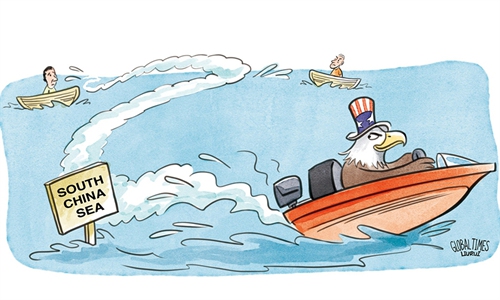
Illustration: Chen Xia/GT
It seems logical that children raised in Britain are taught in British schools about British history and about their nation's historical role in shaping the world today. One would expect this to give British children a deep understanding of international affairs and their country's place in the world. However, there is a generation of individuals who have been raised within this frame of reference and now, as adults, still cling to the shadow of the British Empire, which influences their thoughts and clouds their judgment.The subliminal conceit that Britain, while no longer ruling the waves, still has a significant role to play in international affairs, often leads to a patronizing and condescending attitude toward other nations. This mind-set still exerts a powerful sway over many in the UK today. This historical echo is something that can be heard in many nations, but in Britain, it is strongest among the political classes and its presence helps shape the geopolitical strategy emerging from London.
This week, the government in London displayed an embarrassingly old colonial mind-set in its attitudes toward China. This raises the question of why such a mind-set persists, despite the changing dynamics of the world.
Whitehall's Foreign, Commonwealth and Development Office issued a thinly-veiled attack on China when it criticized China's actions to deter incursions into its sovereign territory by Philippine vessels in the South China Sea. It condemned what it called "unsafe and escalatory tactics" by Chinese vessels when in fact the escalation was caused by Manila sending ships with the intention of provoking such a reaction.
Why has the UK followed such a path? It may be caused by one of two reasons - or a combination of both. The first is London's implacable devotion to the memory of the empire. They believed they had an inalienable right to adjudicate on the futures of civilizations on the other side of the planet. The second reason is the slavish adherence to the foreign policy objectives of their counterparts in Washington.
The day before Britain issued its statement condemning China over the confrontational incidents involving the Philippines and China in the South China Sea, the US had called the Chinese actions "reckless" and accused Beijing of "dangerous and destabilizing conduct," undermining regional stability.
These arguments made by London have followed the line drawn for it by Washington. London suggests that international law should apply. Well, yes it should. But it should be applied evenly, and without prejudice. The Philippines' claim to the Nansha Islands, for example, is spurious, to say the least, and seems to rest largely upon the presence on the Ren'ai Jiao of the so-called warship the BRP Sierra Madre. The "ship" was deliberately and illegally grounded on the reef in order to try and claim aright under international law that a ship is sovereign territory, and as long as it is there the shoals around it must also belong to the nation to which the ship belongs.
But this is clearly nonsense. It is no longer a ship. It is a fantasy worthy of one of those exaggerated yarns for which sailors the world over have been famous for centuries.
It should come as no surprise, then, that this flight of imagination parallels the delusion that the UK has any moral authority to pronounce judgment on China's role in the South China Sea. This applies doubly so to matters related to Hong Kong, which the UK conveniently forgets it acquired through theft and then brutally colonized it for over 150 years without any semblance of democratic input from the indigenous population and on which it now has the arrogance to seek to adjudicate. Britain needs to take a reality check and stop deluding itself.
The author is a journalist and lecturer in Britain. opinion@globaltimes.com.cn



